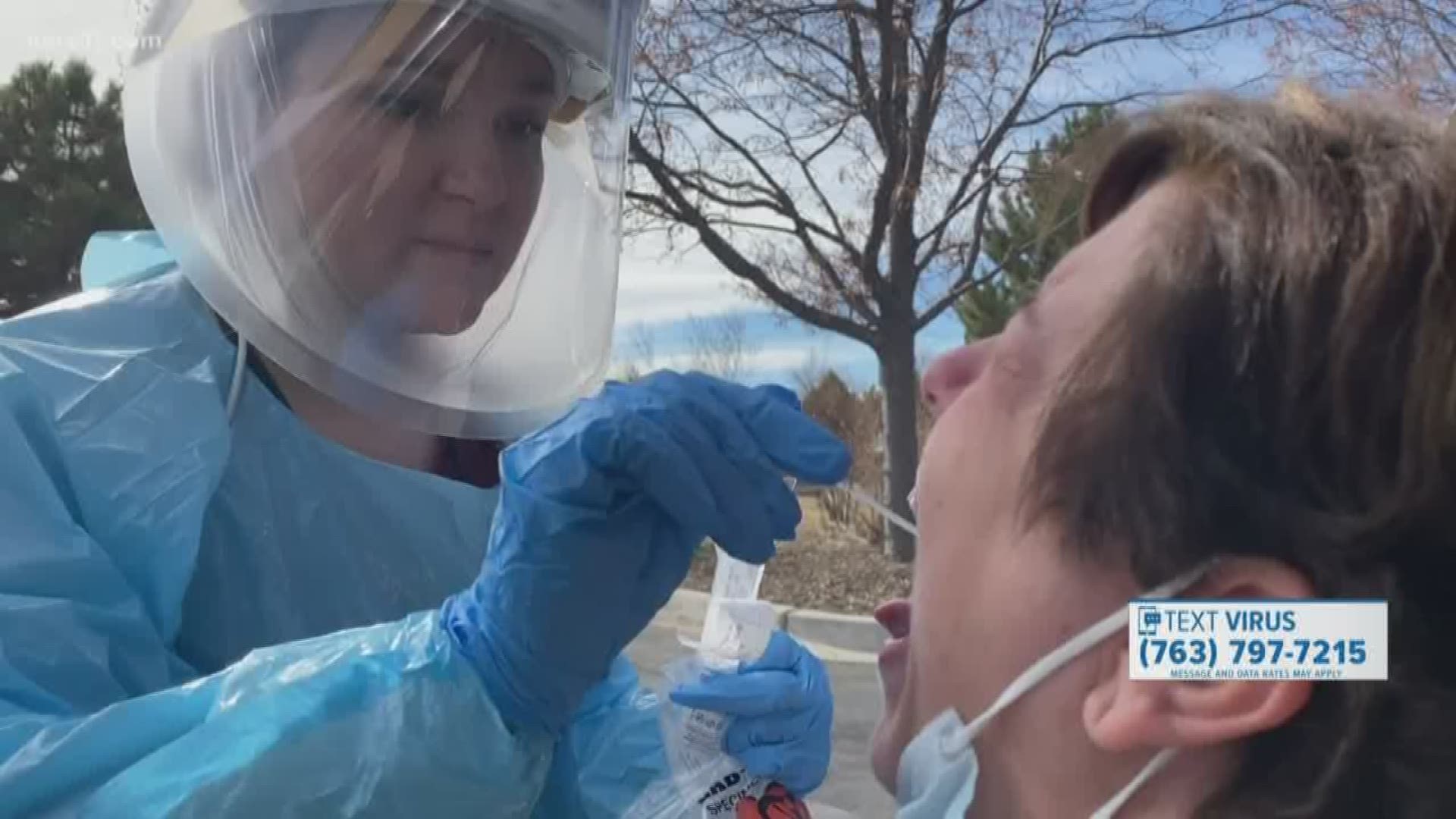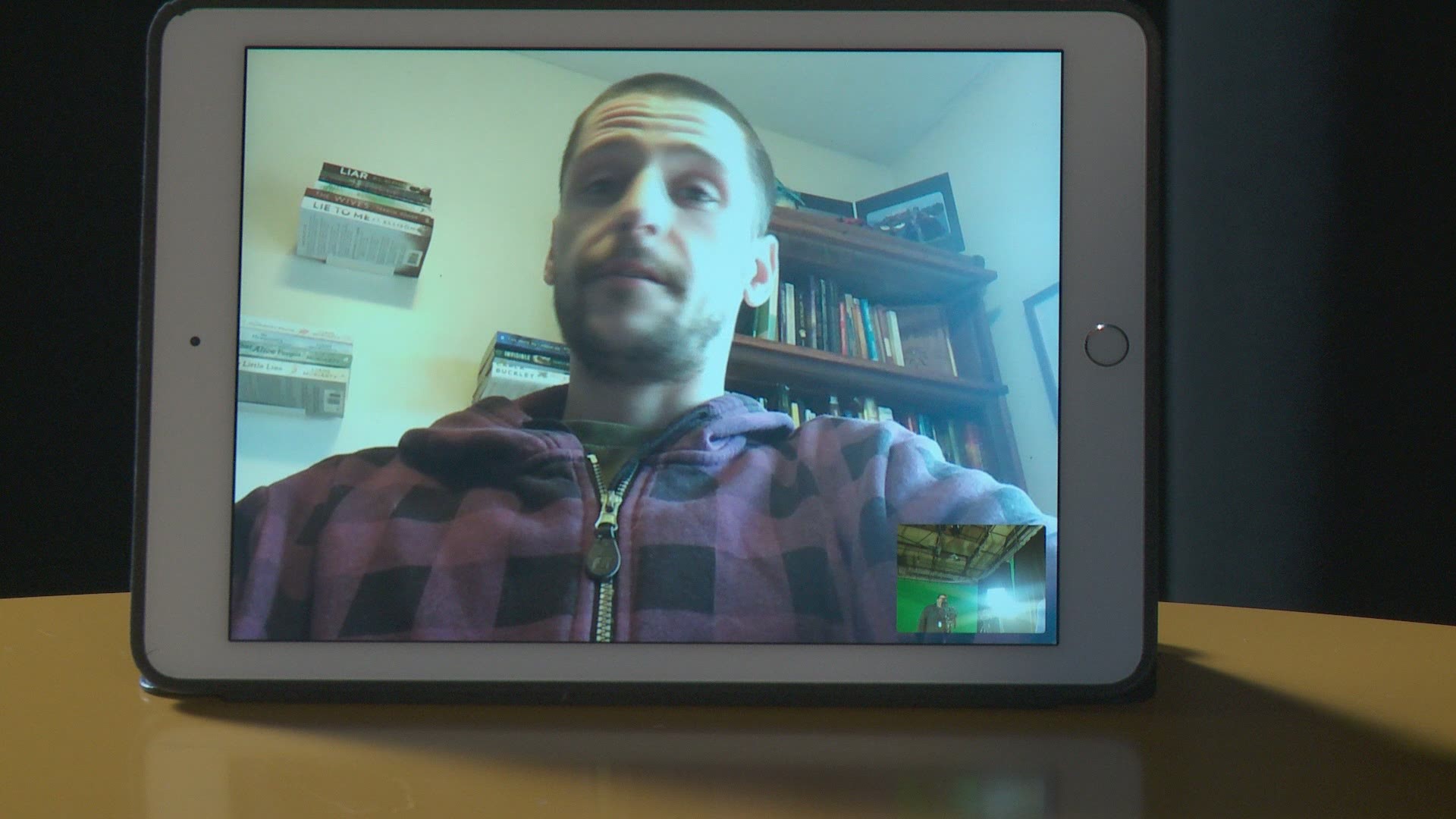ST PAUL, Minn. — Shortages of the basic supplies to test for coronavirus have created a testing backlog in Minnesota, forcing sick patients who want to be tested to be turned away. The shortages are even limiting flu testing across the state.
“In order to get tested for COVID-19 or influenza currently as of today you need to be a hospitalized patient,” said Dr. Robert Thomas, president of the Minneapolis-based Emergency Physicians Professional Association, which has doctors across the metro area.
On Wednesday, Gov. Tim Walz announced that the state had a backlog of 1,700 kits that needed to be tested, contradicting information from the Trump administration that there are enough supplies to do the testing.
“I’m telling you we don’t have testing capacity,” Walz said.
The result is, if a patient goes to a Minnesota hospital with symptoms like a fever and shortness of breath, they’ll likely be told to go home without being tested unless they require hospitalization.
“Don’t present in the first place, unless you’re experiencing significant respiratory difficulties,” Thomas said.
Recommendations changed
When the coronavirus first began to spread in Minnesota, the general instruction to clinicians from the state health department was to first test the potentially infected patient for influenza. The hope was that by screening out people who just had the flu, the scarce coronavirus tests could be saved for people most at risk.
Hospitals saw an influx of patients, but often some of the same basic supplies used to test for flu are also needed to test for coronavirus.
“Now we’ve literally run out of swabs,” said Dr. Timothy Johnson, who practices in St. Cloud and is president of the Minnesota chapter of Emergency Physicians.
The instruction from the state health department on COVID-19 changed this week. Doctors were told to limit testing to only those who are hospitalized, health care providers or in long-term care.
Limiting flu testing
A spokesperson for the Minnesota Department of Health said that health care providers have not been asked to stop testing for influenza. But because the collection kits are often the same, health providers across the state said they had to adopt the same COVID-19 standards for influenza testing.
At Allina, which has more than a dozen hospitals and clinics in Minnesota, flu testing is now restricted to inpatients only.
“These supplies are getting scarce,” said Heather Dawson, vice president of Allina’s laboratory services.
While the flu is deadly – killing 126 people in Minnesota during the 2018-19 flu season -- health providers say restricting the influenza tests should not have serious impact on patient care. A positive flu test would do little to change the treatment, as available medications like Tamiflu are generally only effective if used within 48 hours of symptoms and reduce those symptoms by only a day or two, they say.
Thomas said without the ability to test for either influenza or coronavirus, it only reinforces the message that’s given to the public: stay home if you’re sick, and instead use an online screening.
“People who come into the ER and aren’t seriously ill, we can do nothing,” Thomas said.
Developing new tests
Even when supplies are available, testing for COVID-19 takes time.
The vast majority of tests currently conducted in the United States are genetic. After a patient is swabbed, the sample is sent to a lab which copies the DNA to match it against the genetic fingerprint of the coronavirus.
It’s generally a four-hour test. And if you factor in transport time to a qualified lab – plus the current testing backlog – the process can take several days.
The genetic test only shows whether the virus was present in the patient’s body at the time the sample was taken.
Some countries are using a test that involves a blood draw. Instead of trying to detect the virus itself, that type of lab test looks for the antibodies we produce to fight the virus. Experts say those tests would show if a patient had ever had the virus – including people who have recovered and would otherwise show up negative on the genetic test.
Researchers around the globe are racing to develop an instant test that could be used in a doctor’s office or an emergency room and give immediate results.
But for now, health officials are telling people to stay home if they feel sick - because unless you’re so sick you need to be hospitalized, you won’t be tested for COVID-19 or even the flu.
KARE 11’s coverage of the coronavirus is rooted in Facts, not Fear. Visit kare11.com/coronavirus for comprehensive coverage, find out what you need to know about the Midwest specifically, learn more about the symptoms, and keep tabs on the cases around the world here. Have a question? Text it to us at 763-797-7215. And get the latest coronavirus updates sent right to your inbox every morning. Subscribe to the KARE 11 Sunrise newsletter here. Help local families in need: www.kare11.com/give11.
The state of Minnesota has set up a hotline for general questions about coronavirus at 651-201-3920 or 1-800-657-3903, available 7 a.m. to 7 p.m.
More information on the coronavirus:


